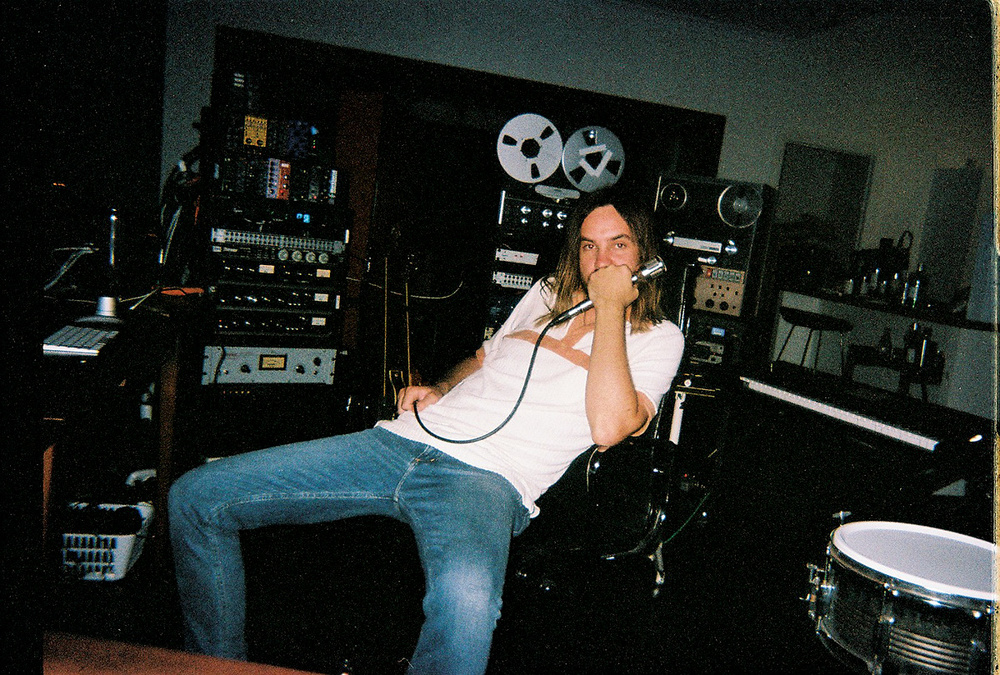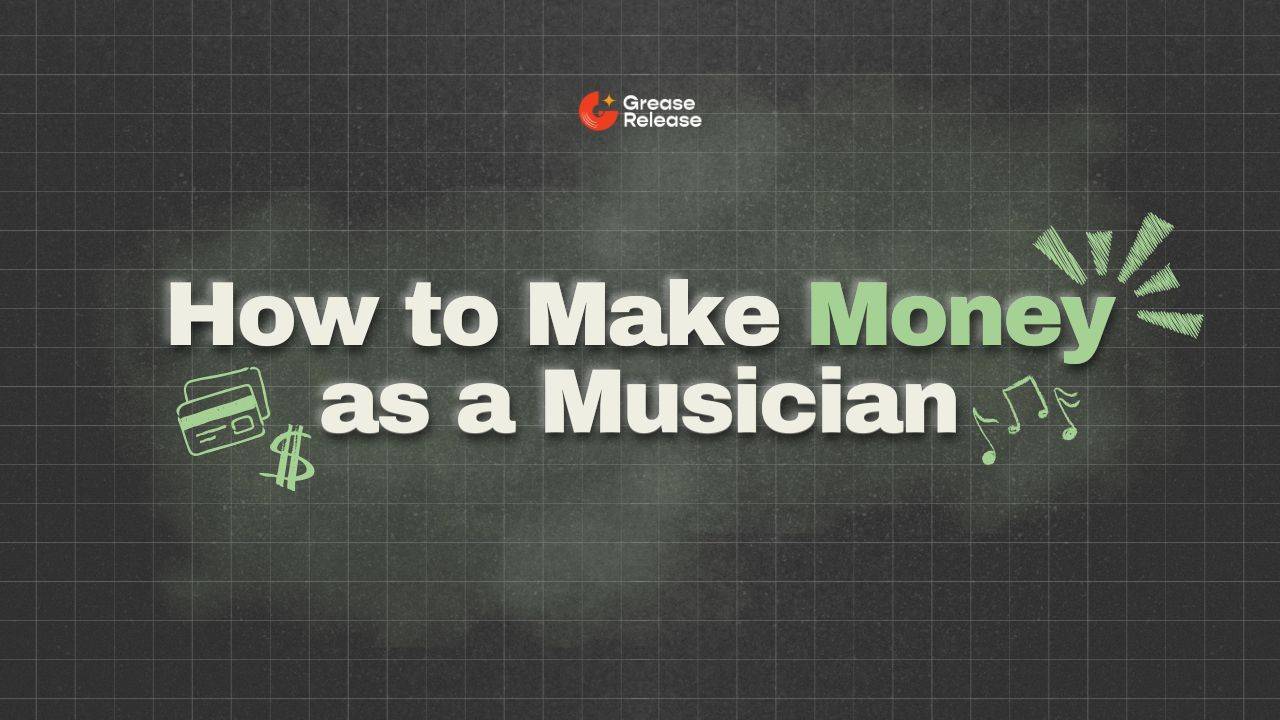
The Role Of A Music Producer
Jul 16, 2025Inside the Role of a Music Producer
When you hear your favorite song, a music producer is often the person working behind the scenes to bring it to life. Music Production is a creative and technical task, and so all music producers help shape the sound, guide the creative direction, and make sure every element fits together smoothly. From managing recording sessions to polishing the final mix, music producers are the key figures who blend creativity with technical skill to create tracks that truly connect with listeners. A Music Producer’s role is vital to shaping the music. This blog reads you through everything a music producer does and the skills one must have.
We’ll be taking a look at the following:
What Is A Music Producer?
A music producer is someone who helps make songs sound their best. They work with artists to shape the vibe of a track, give feedback on how things should sound, and often handle the technical side of recording too. Whether it's choosing the right instruments, helping with lyrics, or mixing the final version, a music producer is basically the go-to person who brings a song to life from start to finish.
Producers also keep things running smoothly in the studio. They know how to get the best takes out of an artist, fix problems when something doesn’t sound right, and make sure deadlines are met. In short, a good producer helps turn a rough idea into a polished, professional track that sounds great on any speaker.

Some producers are hands-on and like to be involved in every step, from writing to recording to the final mix. Others focus more on the overall direction and make sure everyone’s on the same page. They might suggest changes to the melody, help with the arrangement, or even play instruments themselves. These differences in roles taken up by music producers help us categorize them into groups.
How Many Types Of Music Producers Are There?
The role of a music producer can vary a lot depending on the type of producer they are. Some are hands-on with songwriting and play a major role in shaping the melody and lyrics, while others focus more on the technical side, like mixing and sound engineering. A DJ producer might create beats and remixes, while a musician producer might build songs by layering live instruments. The responsibilities also shift based on the project. Sometimes they are leading the entire process, and other times they are just brought in to polish the final mix. So while the core goal is always to bring the artist’s vision to life, how a producer does that depends on their strengths, style, and the kind of music they are working on. Read further to understand how roles can shift with different types of music producers.
What Is The Role Of A Music Producer?
A music producer’s role can vary, and hence, the types of music producers aren’t set in stone. Their roles can overlap depending on the project. One producer might write, record, and mix everything themselves, while another might focus only on one part of the process. The lines often blur, especially in today’s music scene, where many artists wear multiple hats. Still, there are a few broad categories we can use to understand and classify producers based on their strengths, workflow, and the kind of value they bring to a track. These types help give us a better idea of the many ways a music producer can shape a song.
- Songwriter‑Producer:
These folks build songs from scratch. Whether it’s the melodies, chords, lyrics, structure, you name it. They’re behind a ton of pop hits too, think Pharrell, Max Martin, Timbaland. - Singer‑Songwriter‑Producer:
They write, perform, produce, and record their own music. Think Billie Eilish & Finneas, Grimes, James Blake.
- Musician‑Producer:
Multi‑instrumentalists who start with musical ideas, jams, or live performances and build songs organically, like Kevin Parker of Tame Impala.
- Producer‑Engineer:
The technical wizards who make the studio vibe happen. They set up mics, capture performances, and shape the sonic tone, folks like Sylvia Massy and Steve Albini. - Producer‑Mixer:
These pros polish mixes, shape transitions, automate dynamics, and add sonic depth, think Dr. Dre or Mike Dean. - DJ‑Producer:
Hunters of vibes and beats, they sample, flip, collaborate, and spin their own productions live. Diplo, Aphex Twin, and Kaytranada are classic examples. - Mixing & Mastering Engineer:
Not usually the face of the song, but the final ears. They make sure the mix is clean, clear, and loud enough to shine everywhere, legends like Emily Lazar or Bob Katz.
So whether someone’s crafting hit hooks, spinning beats at a club, or fine‑tuning the final polish, there's a producer type for every flavour. Each has their own lane, but they all contribute to making music sound awesome.
What Are The Skills Of A Music Producer?
A music producer plays a key role in shaping a song or project from start to finish. They help develop the sound and direction of the music by making creative and technical decisions. This includes choosing the right instruments, suggesting changes to song structure, guiding vocal performances, and overseeing the entire recording process. Some producers are involved in writing and arranging, while others focus more on capturing the best takes and handling the technical setup in the studio.
Strong musical knowledge is essential. A producer should understand melody, harmony, rhythm, and song arrangement. They also need to be skilled with digital audio workstations, sound engineering tools, and recording equipment. But it is not just about the tech producers must also know how to bring out the best in artists, which means having great communication, leadership, and problem-solving skills so that they can guide an artist through a crisis and help choose what works best for the project and sound.
Another major part of a producer’s job is project management. They are responsible for making sure everything stays on schedule, within budget, and aligned with the artist’s vision. If things go off track, the producer is the one who steps in to fix it. They are also there to offer creative guidance, support new ideas, and sometimes act as a mentor.
Since different types of music producers have different strengths, the specific role they play depends on the project. Some are more hands-on creatively, while others focus on sound quality and mixing. Either way, the main goal remains the same: to bring the artist’s ideas to life and make the music sound the best it possibly can.
How Do I Start Learning Music Production?
Getting into music production might feel like a big step, but it's actually easier than you think if you take it one piece at a time. Start by picking the right music production software. This is where you’ll create, edit, and arrange all your sounds. Some of the most popular ones are FL Studio, Ableton Live, Logic Pro, and Pro Tools. Try a few and go with the one that feels easiest for you to work with.

Once you’ve got your music production software, dive into tutorials. YouTube is packed with free videos, and there are sites like Skillshare and Coursera that offer beginner courses. You’ll learn how to make beats, record vocals, add effects, and mix your tracks. If you want something more serious or career-focused, look into music production schools. These schools give you hands-on training, access to studio gear, and can even help with job placement.
It’s also good to understand how music producer pay works. Sometimes producers get paid upfront, other times they earn royalties depending on how the track performs. Learning about music producer pay early on helps you know what to expect when working with artists or releasing your own stuff.

The key is to keep practicing. Try making remakes of songs you like or start your own original projects. Share your work, get feedback, and improve with each track. If you’re really serious, music production schools can take you deeper into advanced techniques and industry knowledge. Some even offer certifications that can help you stand out.
In the end, just stay curious and keep making music. With time, practice, and the right mindset, you can go from a bedroom producer to working on real projects and maybe even earning solid music producer pay while doing what you love.
Final Thoughts
A music producer is so much more than someone who just sits behind the controls in a studio. They are creative partners, technical experts, problem solvers, and often the glue that holds a project together. Whether they are helping shape the sound, guiding an artist through a tough session, or making sure everything runs smoothly, their role is essential to turning an idea into a finished track. While the exact duties may shift depending on the type of producer or the project, one thing stays the same. A good producer knows how to bring out the best in both the music and the artist behind it.
Take Travis Scott’s Skeletons, for example. That track would not have existed in the way we know it if Kevin Parker of Tame Impala hadn’t stepped in as a producer. His unique style, sense of melody, and sonic direction played a huge part in shaping the song’s dreamy and experimental vibe. It’s a perfect example of how a producer’s vision can transform a track and take it to an entirely new level.
We at GreaseRelease, have a bunch of curators on our network who are looking for new & exciting music to push on their massive playlists. If you make music and want to reach a wider audience, check out our submission platform and get a chance to reach millions of listeners!
Don't miss my newsletter!
Join me on a music entrepreneurship journey with new tips and tricks delivered straight to your inbox.
We hate SPAM. We will never sell your information, for any reason.




